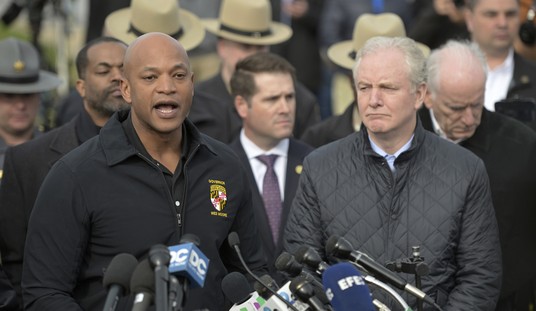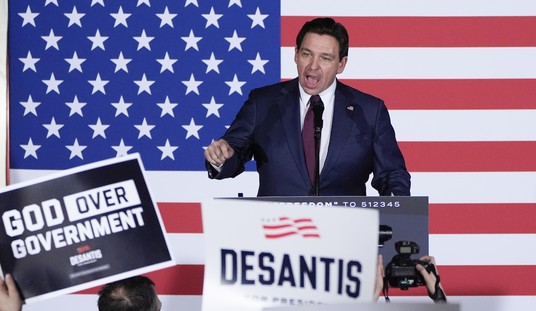Libertarian-ish blogger Julian Sanchez recently wrote a post about the supposed closing of the conservative mind that got a lot of blog buzz. The ensuing back-and-forth discussed the conservative base, conservative policy wonks, and conservative political leaders. However, the most quoted part of Sanchez’s piece was holistic:
One of the more striking features of the contemporary conservative movement is the extent to which it has been moving toward epistemic closure. Reality is defined by a multimedia array of interconnected and cross promoting conservative blogs, radio programs, magazines, and of course, Fox News. Whatever conflicts with that reality can be dismissed out of hand because it comes from the liberal media, and is therefore ipso facto not to be trusted. (How do you know they’re liberal? Well, they disagree with the conservative media!) This epistemic closure can be a source of solidarity and energy, but it also renders the conservative media ecosystem fragile.
As Power Line’s Scott Johnson notes, in this discussion, the claim is assumed and the focus is on explaining it. But what evidence is there to support it?
Republicans tend to be more informed about the news than Democrats, even after adjusting for demographics. The regular audience of Fox News is about as informed as the the regular audience of CNN or network news generally. The regular audience of Rush Limbaugh is more informed than all of the above, as well as the audiences of cable news, online news, news magazines, C-SPAN and the PBS NewsHour.
The reason why Limbaugh listeners rank that high can be demonstrated by looking at his broadcast from Monday (the day I started writing this). Limbaugh did commentary on fmr. Pres. Clinton’s exploitation of the anniversary of the Oklahoma City bombing to paint Tea Partiers and other Obama critics as a potentially violent fringe that endangers the country. His sources included: an Associated Press story on Clinton’s comments; an ABC News story reporting Clinton’s reply to Limbaugh’s earlier response; an Associated Press story on a Pew poll showing 80% of Americans lack trust in the federal government; and a WSJ op-ed by Debra Burlingame.
Limbaugh also did commentary on the claims made by TIME Magazine columnist Joe Klein and New York Magazine columnist John Heilemann, that Glenn Beck, Sarah Palin and Limbaugh were “rub[bing] right up close to being seditious.” Limbaugh aired: audio of their accusations; audio of Hillary Clinton defending the right to dissent (when practiced by the Left); and a piece by Byron York documenting that while Heilemann claimed that referring to the Obama “regime” has connotations of tyranny, Heilemann had himself used the term on various occasions, as had Chris Matthews (the host of the show on which Heilemann was appearing).
Limbaugh also did a piece on the Obama administration’s coincidentally-timed suit against Goldman Sachs, based on articles from the Los Angeles Times and the New York Post, along with a blog post from Sweetness & Light, which in turn was based on a Bloomberg report and a Washington Examiner column. Limbaugh’s “stack of stuff” for the day included: a Rasmussen poll; two stories from the Los Angeles Times; one from the New York Times; one from the Associated Press; and two pieces from the UK’s unabashedly left-leaning Guardian. If Limbaugh is trying to keep his listeners from being exposed to a diversity of reporting and opinion, he is failing miserably.
With the exception of Fox News (a big fish in the small pond of cable news viewership), the same general pattern can be found across right-leaning media, which lack the resources and institutions to produce original reporting. The notion that conservative outlets and audiences dismiss the left-leaning establishment media is absurd. To the contrary, conservatives arguably are too focused on dissecting establishment journalism, at the expense of developing their own resources, institutions and stories.
Of course, right-leaning media break some stories, like the outrageous behavior of Pres. Obama’s allies at ACORN, or that Pres. Obama’s “green jobs” czar was a 9/11 Truther. When they do, the reaction of outlets like the New York Times is so pathetic that ombudsman Clark Hoyt warned the paper risked looking “clueless or, worse, partisan itself.” (Too late, Clark.) Relatedly, the NYT has become interested in reporting on the likely pitfalls of ObamaCare — heavily covered by right-leaning media — only after it was signed into law. Some might call these disconnects evidence of epistemic closure on the Left — suppressing stories until they either cannot be ignored or cannot harm the political agenda of the NYT’s editorial board. But do not look for those spilling crocodile tears over the closed-mindedness of the Right to notice it.
Indeed, Sanchez, Jonathan Chait and others addressing this topic apparently operate from the assumption that (with the possible exception of parts of the MSNBC schedule) that the establishment media does not lean Left. There is a wealth of data, from sources spanning the ideological spectrum, showing that the national press corps overwhelmingly favors Democrats and that the public views the national press corps as favoring Democrats. Public opinion is not always correct, even on questions like media bias, which are to some degree in the eye of the beholder. However, the fact that people like Chait do not seriously consider the point says as much about epistemic closure on the Left as such people have to say about the phenomenon on the Right.
Megan McArdle, even while arguing that epistemic closure is more of a problem on the Right, suggests that the marginalization of conservatives by the cultural elite fuels it:
The point is that when one group has privilege, and the other doesn’t, the response isn’t symmetrical, a fact that the dominant group tends to spend a lot of time remarking upon. The out-group is angrier and prizes its group identity–“conservative”–over weaker affiliations like “journalist” or “sociologist.” The angrier the out-group gets, the more uncomfortable and hostile the dominant group gets … which, of course, makes the out-group even angrier.
The dominant majority further reinforces the effect because membership of “journalist” or “sociologist” comes to be defined by “not having a strong allegiance to groups such as ‘conservative.'” Which further weakens conservative ties to those professional identities.
That’s why you have black newspapers, and Jewish magazines, and Irish arts centers, but no “Bland: The Magazine of the American White Middle Class.” The dominant group doesn’t enforce its group identity the way the out-group does. It doesn’t have to. It gets to decide what constitute the acceptable modes of behavior, sources of authority, and ways of knowing. The privileged group doesn’t need its own institution specifically devoted to advancing its interests. All it needs is a sigh, and a sneer.
It will come as no surprise that the response to McArdle from people like Andrew Sullivan and Jonathan Bernstein was, in essence, a sigh and a sneer — making no attempt to engage the sociological point McArdle argues. Conor Friedersdorf was more polite, though by restricting himself to opinion journalism, he fails to address the structural problems with the core, news-gathering side of journalism.
To put this all in context, consider some recent history. In 2004, the New York Times assigned a reporter to cover “conservative forces in religion, politics, law, business and the media.” This year, the Washington Post hired Dave Weigel to do the same. By their own actions, the nation’s two most-influential newspapers tacitly admit that to them, conservatives are The Others. The Sullivans and Bernsteins of the world apparently do not grasp it, because thery are so, er, open-minded. Such people may lack the perspective to judge whose minds are more closed.
—
Update: Sanchez responds by e-mail:
Apologies for not directing this straight to the author, but you might note to your writer Karl that I go out of my way to acknowledge, for several paragraphs, that mainstream journalists are mostly leftists, that this inevitably exerts some influence on coverage, and that the attempt to build conservative news outlets is (in principle) a reasonable strategy for introducing a corrective. I think the effort has misfired in important ways, but it’s a little odd to read a position I’ve explicitly (& almost tediously) disavowed ascribed to me. I’m happy to spar over things I actually believe, though.
Sanchez’s original blog post is the first link in this piece. I recommend that people read the whole thing. But you will not find the “several paragraphs” about establishment media bias, which is why his snark (“How do you know they’re liberal? Well, they disagree with the conservative media!”) struck me as dismissive of the issue of establishment media bias. Sanchez may have stated such beliefs elsewhere, in which case I am glad to correct the record.
Taking him at his word, I merely note that his e-mail does not substantively address my main objection to his thesis, which is that — contrary to his bare assertion — conservative media spends a great deal of time presenting and responding substantively to establishment journalism. Although I used a day of Limbaugh to demonstrate the point, I could have as easily sucked up and used HotAir as an example. Allahpundit and Ed do a tremendous amount of substantive response to establishment news reporting and opinion journalism every day, under tight deadlines. Alternately touted and mocked as RINO candy-asses, these two were originally hired by no less than Michelle Malkin, and were retained as valuable assets by Salem Communications. Just another non-example of the epistemic closure on the Right.
This post was promoted from GreenRoom to HotAir.com.
To see the comments on the original post, look here.








Join the conversation as a VIP Member